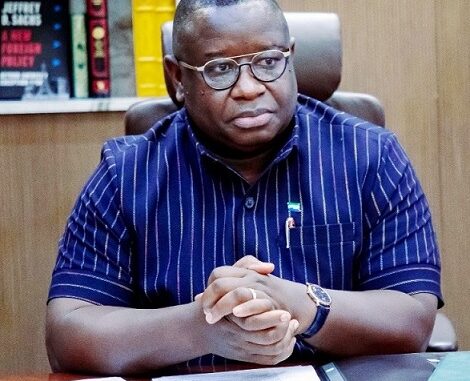
By the NIGHTWATCH Newspaper
In his last address before Sierras Leonean law makers in 2007, President Ahmad Tejan Kabba warned successive governments against overreliance on foreign aid as it could raise questions of sovereignty.
Kabba’s warning has caught President Julius Maada Bio off-guard after the international community cut off aid owing to alleged election rigging.
The United Nations, European Union, Commonwealth, United States, United Kingdom, African Union and ECOWAS have stopped funding Sierra Leone as they do not recognise Bio’s government.
As the aid drought continues, Sierra Leone’s economy is almost on the edge of implosion as indicators of abject poverty and under-development have crystalised in various sectors of the economy.
Currently, Bio’s hands are tied down as he relies on domestic revenue to run a cash-trapped and bankrupt economy making it difficult to pay salaries and allowances to government workers let alone embark on serious development projects in the infrastructure and energy sectors.
Since funding cut was announced by the West, all roads project has stopped with no one knowing when they will begin again. It also remains unclear whether the collapsed bridge along the highway that leads to President Bio’s home has been repaired.
Energy supply also remains unreliable as government owes huge debts to the power supplier, the Karpowership which has been on Sierra Leonean waters for several years. The Bumbuna Pahse-2 project had come to a halt for years and the Cote d’voire energy project is still in the pipeline.
In the absence of donor funding, the Bio regime has closed down the Free Quality Education (FQE) initiative which has been government’s flagship project in the past five years. Despite the millions of dollars invested in the scheme, the result according to analysts, is nothing to write home about as no tangible could be pointed at.
The funding cut effect has even spilled over to Bio’s new flagship project, agriculture which prompted most of Bio’s visits to rich countries to see how he can make gains this time.
Bio, few months ago, was in a food summit in Italy as the world intends to go green in a year’s time. Records seen by this press have shown that a great chunk of foreign aid will be directed to agriculture to end famine and starvation in various parts of the world.
It is not yet known whether Sierra Leone would be counted among the beneficiaries as her government still grapples with the legitimacy crisis, but deeply interested in attending global conferences and meetings to which he is never invited.
President Bio is said to have forced his way to an inaugural ceremony of Senegal’s elected President Diomaye Faye just to interact with leaders of other countries so that he could be seen as a legitimate President of Sierra Leone.
He also faced similar challenge even in his first term when he had international recognition as he was snubbed by the Kenyan President, William Ruto when he attended his inauguration uninvited and unnoticed.
The seemingly unending struggle to get foreign aid has been linked to President Bio’s zest to retain power after he failed to win June, 2023 election supported by the Electoral Commission for Sierra Leone, an agency mandated by law to conduct and supervise all public elections and referenda in Sierra Leone.
Chief Electoral Commissioner, Mohamed Kenewui Konneh played a key role in tilting the scale in favour of the incumbent who he offered 57% of the votes leaving 43% for APC’s Dr Samura Kamara, a man who many see as the actual winner of the elections.
The ECSL boss started his rigging tactics when he failed to implement most of the recommendations that emanated from the 2018 elections, and would always defend his action that “Sierra Leone is a sovereign state.” In his defence of Sierra Leone’s sovereignty, Konneh reportedly collected and squandered huge sums of money entrusted to him by EU and other donor agencies to ensure free and fair elections.
However, the love for SLPP could not let him do the right thing as he sacrificed the country for a party bringing to life Kabba’s prediction made over a decade ago.
At the time of the warning, Sierra Leone had poor roads, unreliable power supply, unsound health system, weak economy after emerging from a war that is dubbed the bloodiest on the continent.
Donor support was the only way out for government to meet its service obligations to its citizenry, and his warning implied that the country had to migrate from aid to trade to fend off undue external influence or control.
Such migration, if Kabba was understood properly, obliges Sierra Leonean leaders to mobilise local resources and embark on industrialisation schemes so that the country can enjoy favourable terms at the global market.
Unlike Bio, former President Ernest Bai Koroma who took over from late President Kabba worked hard to end Sierra Leone’s over-dependence on foreign aid seen in his widely known slogan of ‘from aid to trade.’ In his early days of his administration in 2008, ex-President Koroma canvased the international community that Sierra Leone was up for business and no more aid but trade.
Koroma’s appeal was a loud and strong one to world investors as Sierra Leone saw the arrival of London Mining Company, African Minerals Limited (AML) and SUCFIM Agricultural Company which created jobs and contributed to Sierra Leone’s economic growth and development.
Backed up by donor support, Sierra Leone’s economy flourished with inflation kept single-digit, exports increased, exchange rate improved and cost of living reduced to its barest minimum.
As part of his continuation of the poverty reduction scheme, former President Koroma subsidised for most of the commodities especially petroleum product which many referred to as a ‘political commodity.’
Its negative effect will soon spill over to other sectors of the economy immediately fuel is tampered with and men in the streets who are in the majority are on the receiving end.
The world was surprised that Sierra Leone could intervene in several humanitarian crises with financial support. With a professional, well-paid and motivated police force, Sierra Leone immensely contributed to global peace and security in Africa and other parts of the world.
The financial returns earned from international peace keeping also made the country’s economy buoyant.
It was during the Koroma regime that Sierra Leone was rated, in 2013, fastest growing economy in the world.
According to the IMF (International Monetary Fund) economic projections, Sierra Leone’s economy was set to hit a high peak had things remained the same.
The outbreak of Ebola virus in May 2014, a year after its sound rating reversed the economic gains made in the past years. However, with a strong and dynamic leadership, former Sierra Leone stood again on her legs as the Chinese and British companies, Shandong and Timis Corporation took over the Tonkolili and PortLoko Iron Ore mines.
At the time he was riding into the sunset, Koroma left a functioning economy with $500m as reserves. In his handing over note of April, 2018, he admonished his successor President Bio not to cut off subsidies if he is to fare on well with his governance project and the people of Sierra Leone.
Political analysts wasted no time in describing former President Ernest Koroma as the most successful President in Sierra Leone’s history owing to the indelible landmarks he left in the socio-economic and political landscape with his predecessor Kabba taking part of the credit.
He groomed a good successor that took Sierra Leone from nowhere to somewhere owing to committed and honest leadership. Sierra Leone would have attained a middle income status by this time, if he had continued Koroma’s development trajectory.

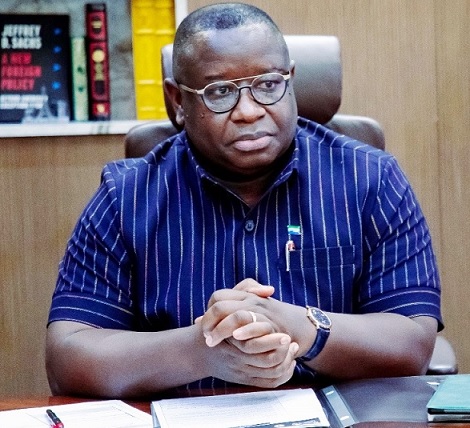
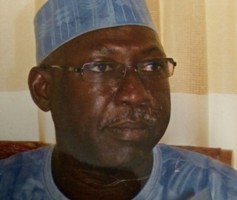
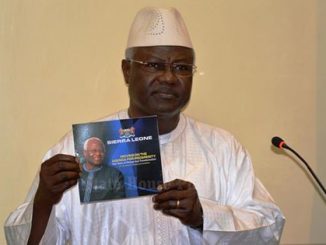
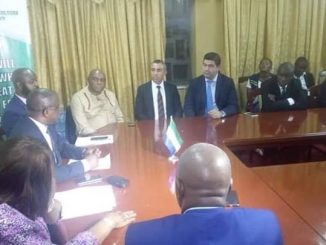
Leave a Reply